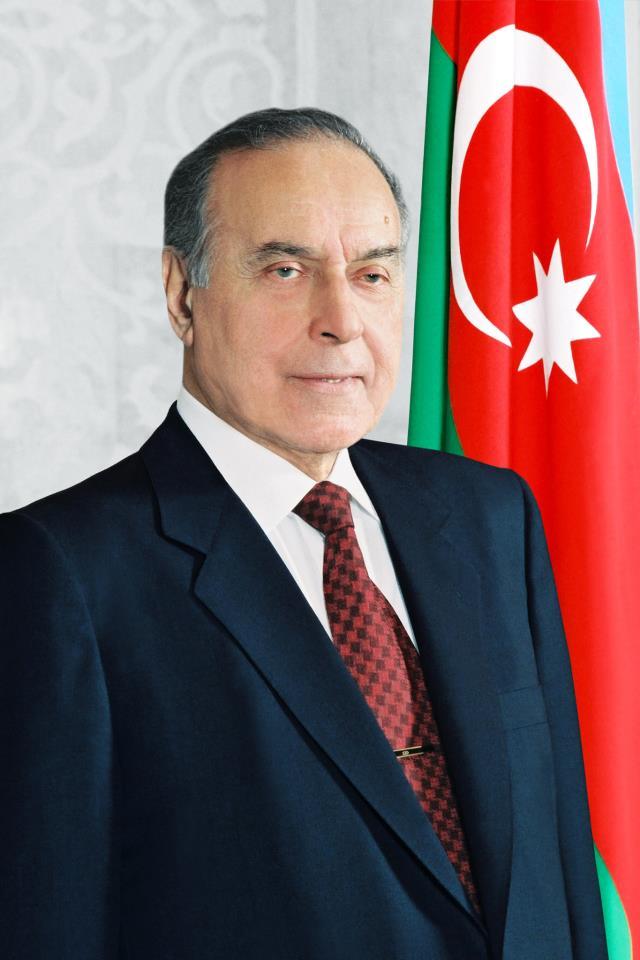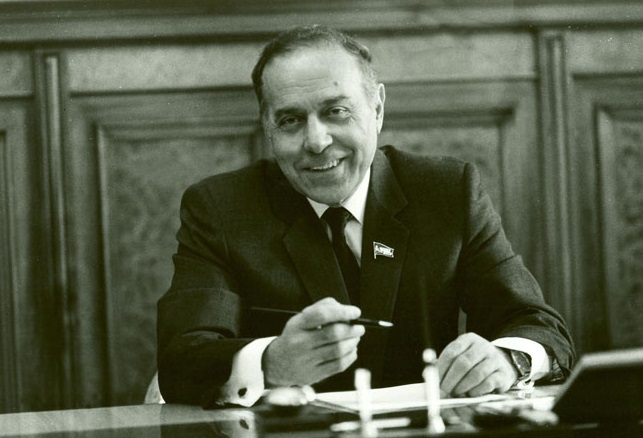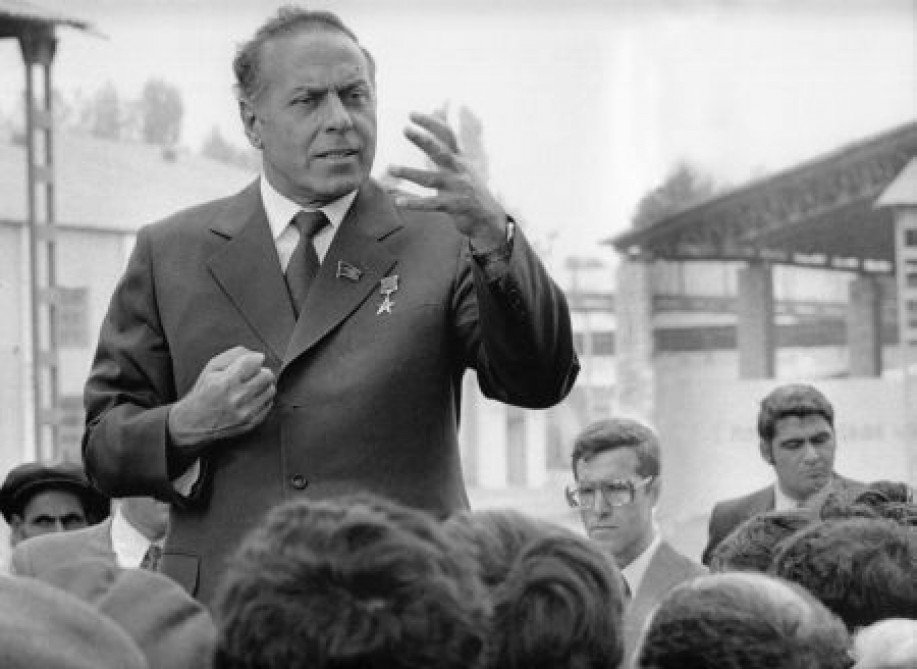Heydar Aliyev: Architect of Modern Azerbaijan
Introduction:
Heydar Aliyev, a towering figure in Azerbaijani politics, played a pivotal role in shaping the trajectory of his country from the tumultuous years of independence to a period of stability, development, and global engagement. As a statesman, strategist, and visionary leader, Aliyev's legacy continues to loom large in Azerbaijan's political landscape and its journey towards modernization and prosperity. This article delves into the life, achievements, and enduring impact of Heydar Aliyev on Azerbaijan's history and development.
Early Life and Political Career:
Heydar Aliyev was born on May 10, 1923, in the city of Nakhchivan, then part of the Soviet Union. His early years were marked by hardship and upheaval, as he witnessed the social and political transformations brought about by the Russian Revolution and the ensuing Soviet era. Despite the challenges of his upbringing, Aliyev demonstrated exceptional intelligence, determination, and leadership qualities from a young age.
Aliyev's political career began in the aftermath of World War II, when he joined the Soviet security apparatus, rising through the ranks to become a prominent figure in the KGB. His tenure in the Soviet security services provided him with invaluable experience and insights into the intricacies of Soviet politics and governance, laying the foundation for his later political ambitions.
Rise to Power and Presidency:
Heydar Aliyev's ascent to power in Azerbaijan came at a critical juncture in the country's history. Following the collapse of the Soviet Union in 1991, Azerbaijan declared its independence, but the newly formed republic faced numerous challenges, including political instability, economic turmoil, and ethnic conflicts. In 1993, amidst a period of chaos and uncertainty, Aliyev was elected as the President of Azerbaijan, tasked with steering the country towards stability and prosperity.
During his presidency, Aliyev implemented a series of reforms aimed at modernizing Azerbaijan's economy, strengthening its institutions, and promoting social cohesion. His pragmatic leadership style, characterized by a blend of pragmatism, nationalism, and authoritarianism, helped consolidate his grip on power and stabilize the country in the face of internal and external threats.
Economic Development and Resource Management:
One of Aliyev's most significant contributions to Azerbaijan's development was his strategic management of the country's vast energy resources, particularly its oil and gas reserves. Under his leadership, Azerbaijan embarked on ambitious projects to exploit its hydrocarbon wealth, attracting foreign investment and expertise to develop its oil and gas fields.
The signing of the "Contract of the Century" in 1994, which paved the way for the development of Azerbaijan's offshore oil fields in the Caspian Sea, was a landmark achievement that transformed the country's economic fortunes. The subsequent construction of the Baku-Tbilisi-Ceyhan pipeline, a major transnational energy infrastructure project, further solidified Azerbaijan's position as a key player in the global energy market.
In addition to the energy sector, Aliyev prioritized infrastructure development, education, and healthcare as key pillars of Azerbaijan's economic modernization agenda. His administration invested heavily in building roads, bridges, schools, and hospitals, laying the groundwork for sustained economic growth and social progress in the years to come.
Foreign Policy and Regional Dynamics:
Heydar Aliyev's foreign policy agenda was guided by a dual strategy of balancing regional powers and asserting Azerbaijan's sovereignty and territorial integrity on the international stage. He pursued pragmatic partnerships with neighboring countries, such as Russia, Turkey, and Iran, while also seeking to diversify Azerbaijan's diplomatic and economic ties with Western countries and international organizations.
One of the defining challenges of Aliyev's presidency was the unresolved conflict over the Nagorno-Karabakh region, which had erupted into a full-scale war between Azerbaijan and Armenia in the early 1990s. Despite his efforts to negotiate a peaceful resolution to the conflict, including participating in talks mediated by the Organization for Security and Cooperation in Europe (OSCE), a lasting solution remained elusive during his tenure.
Legacy and Enduring Impact:
Heydar Aliyev's legacy looms large in Azerbaijan's contemporary political landscape and its journey towards modernization and nation-building. His pragmatic leadership, economic reforms, and strategic vision laid the foundation for Azerbaijan's emergence as a regional power in the South Caucasus and a key player in the global energy market.
However, Aliyev's legacy is not without controversy, as his tenure was marked by allegations of authoritarianism, human rights abuses, and political repression. Critics accuse him of centralizing power, stifling dissent, and perpetuating a culture of corruption and cronyism within Azerbaijan's political elite.
Despite these criticisms, Aliyev remains a revered figure among many Azerbaijanis, who credit him with steering the country through turbulent times and laying the groundwork for its future prosperity. His son, Ilham Aliyev, succeeded him as President of Azerbaijan in 2003, continuing his father's policies and consolidating the family's political dynasty.
Conclusion:
Heydar Aliyev's legacy as the architect of modern Azerbaijan is complex and multifaceted, reflecting the challenges and contradictions of his era. As a leader, strategist, and statesman, Aliyev played a central role in shaping Azerbaijan's trajectory from the chaos of independence to a period of stability, economic growth, and global engagement.
While his presidency was marked by achievements in economic development, resource management, and foreign policy, it was also marred by allegations of authoritarianism, human rights abuses, and political repression. As Azerbaijan continues to navigate the complexities of its post-Soviet transition, the legacy of Heydar Aliyev remains a subject of debate and reflection, shaping the country's identity, politics, and future trajectory.
Heydar Aliyev's presidency left an indelible mark on Azerbaijan's political, economic, and social landscape, shaping the nation's identity and trajectory in the post-Soviet era. As we further examine his legacy, it's essential to delve into specific aspects of his rule, including his impact on governance, culture, and the country's international standing. During Heydar Aliyev's presidency, Azerbaijan underwent significant governance reforms aimed at modernizing state institutions, promoting efficiency, and enhancing transparency. Aliyev recognized the need to streamline bureaucratic processes, attract foreign investment, and combat corruption to foster economic growth and development.
During Heydar Aliyev's presidency, Azerbaijan underwent significant governance reforms aimed at modernizing state institutions, promoting efficiency, and enhancing transparency. Aliyev recognized the need to streamline bureaucratic processes, attract foreign investment, and combat corruption to foster economic growth and development.
Under his leadership, Azerbaijan implemented measures to improve the business climate, simplify regulations, and promote private enterprise. The establishment of the State Oil Fund of Azerbaijan (SOFAZ) in 1999, for instance, helped manage the country's oil revenues and ensure their sustainable use for future generations.
Aliyev also prioritized infrastructure development, investing in projects to upgrade transportation networks, expand energy infrastructure, and modernize urban centers. These initiatives not only enhanced Azerbaijan's connectivity and competitiveness but also improved the quality of life for its citizens.



































